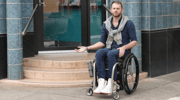SDC Rewards Member
Upgrade yours now
What are microaggressions? And how can they affect our health?
Microaggressions are seemingly innocuous verbal, behavioural or environmental slights against members of minority communities.
The term microaggressions was coined by American psychiatrist Chester Pierce in his 1970 essay Offensive Mechanisms. He explained:
While originally conceived in the context of race relations, microaggressions may also relate to gender, sexual orientation, religion, disability status, weight, or a combination of these.Most offensive actions are not gross and crippling. They are subtle and stunning. The enormity of the complications they cause can be appreciated only when one considers that these subtle blows are delivered incessantly. Even though any single negotiation of offence can in justice be considered of itself to be relatively innocuous, the cumulative effect to the victim and to the victimiser is of an unimaginable magnitude.
What do microaggressions look like?
Consider these situations. All are real-life stories from people of colour I know (used with their consent):- a woman walks into a hairdresser’s shop. The shop is empty and the hairdresser is cleaning hair from the floor. The woman asks if she could get a haircut – if not right now, perhaps another day. The hairdresser says she can’t help as she is not taking on any new customers.
- a man is waiting to pick up his partner in his car, parked on a side street near his partner’s apartment, which is located in a predominantly white suburb. He is minding his own business sitting in his own car. Each time a person walks by, they stare at the man, and keep staring as they walk past.
- a couple is waiting to order coffee in a busy city cafe. The server is chatty with the white couple ahead of them. When they progress to the front of the line, the server is curt, avoids eye contact, and is eager to move on to the next customer. After placing their order, the couple stands where other patrons had previously waited for their orders. A staff member comes over and asks the couple to wait outside instead.
Each of these incidents in isolation may not seem particularly harmful, and some may even chalk them up to coincidences or “reading too much into a situation”.
However, when experienced repeatedly, daily, or even multiple times a day, they can harm people’s psychological and physical health.
Microaggressions are like death by a thousand mosquito bites/Fusion Comedy.
Microaggressions are subtle
Microaggressions are often so subtle that even the victim may not realise that they have just experienced one until later – likely because microaggressions are often accompanied with dissociation (i.e. disconnection from thoughts, feelings or personal sense of identity).As psychologist Ron Taffel explains, dissociation is a “psychically handy” tool that helps ease the pain,
making sure that the moment does not fully register or does its damage until a less vulnerable time later – perhaps during a quiet time alone…
Microaggressions affect our physical and mental health
Microaggressions can occur in all environments, from the workplace, to shops, medical clinics, schools, universities, even while walking or parked on the street. So victims often become increasingly self-conscious and hypervigilant.
Having to be constantly vigilant is a significant burden. Unsplash/Aiden Frazier
The impacts of microaggressions may extend beyond psychological burden and also impact the body’s physiological state.
When humans perceive a sense of imminent danger, the body’s “fight, flight, freeze response” is activated. While this is a useful evolutionary mechanism to protect us from physical danger, when triggered frequently – as may be the case with microaggressions – it can take a toll on the body and contribute to issues such as high blood pressure, anxiety, depression and addiction.
Racial microaggressions have also been associated with suicide risk. One study found experiencing race-related microaggressions leads to more symptoms of depression, which in turn increases thoughts of suicide.
Microaggressions may deter people from seeking help
Health issues among victims may be further compounded when microaggressions are experienced in the health-care sector. A study from 2011 found that sexual orientation-related microaggressions (for example, derogatory comments or assumptions about a person’s sexual orientation) reduced the likelihood of LGBTIQ+ people seeking psychotherapy and impacted their attitudes towards therapy and therapists.Research involving Indigenous people also suggests microaggressions impact help-seeking behaviours in this group (such as not scheduling or attending regular health-care appointments), which subsequently increases the risk of hospitalisation.
Indirect effects of microaggressions
Microaggressions may also impact people’s health status indirectly. Research suggests repeated microaggressions can cause marginalised groups to internalise feelings of inadequacy.Over time, this internalised oppression may impact their academic and professional success, and consequently socioeconomic status.

Feelings of inadequacy can hold people back. Pexels/Ketut Subiyanto
Sceptics and victim-blaming
Sceptics often attribute microaggressions to victims’ “negative emotionality” – a tendency to show negative affect and always feel like a victim.However, proponents argue that this is a form of victim-blamingthat further compounds the harm caused by microaggressions.
Clinical psychologist Monnica Williams suggests that the years of unchecked microaggressions themselves could be the very thing to cause negativity in marginalised people.
Victims’ responses to microaggressors
Victims’ responses to microaggressions can vary among people, and among events experienced by the same person. Victims have to regularly decide whether to let it slide or confront the aggressor.The discourse on microaggressions in social media seems to be on the rise. One study found that there was a drastic increase in the usage of the term “microaggression” on Twitter between 2010 and 2018. Social media discussions and other online spaces may help victims (particularly younger people) to respond more critically to microaggressors.
Other technological innovations, such as the virtual reality-based intervention Equal Reality, are also helping people walk in another’s shoes, recognise unconscious bias, mitigate risk of microaggressions, and promote more inclusive workplaces.
This article was first published on The Conversation, and was written by Mahima Kalla, Digital Health Transformation Research Fellow, The University of Melbourne





